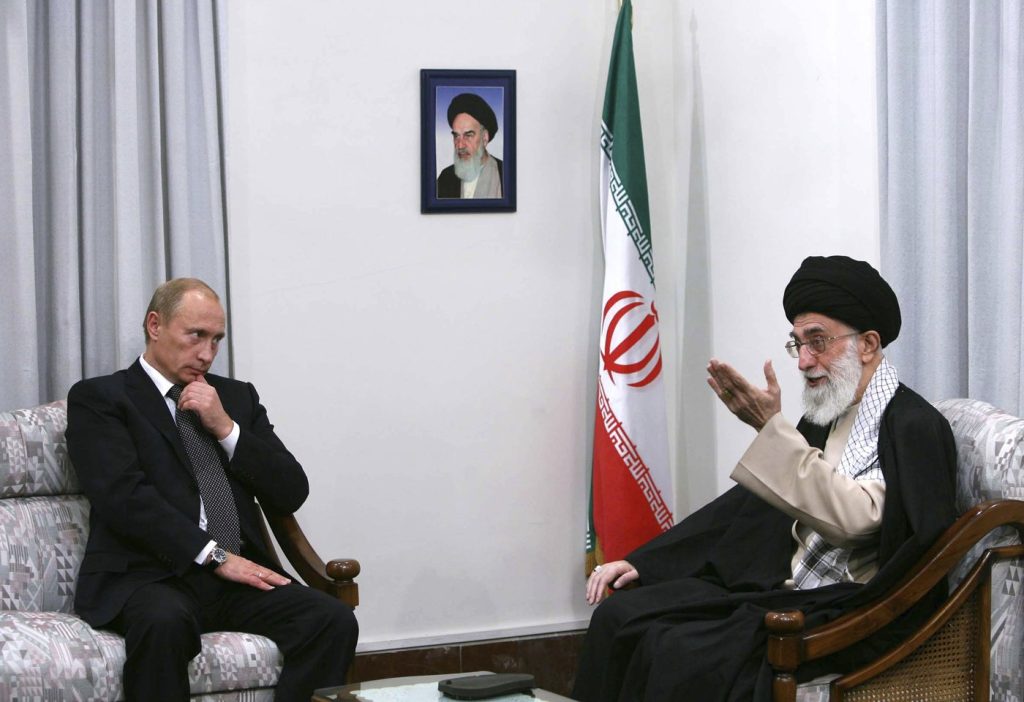MOSCOW (AP) — Russian President Vladimir Putin is set to host Iranian President Masoud Pezeshkian on Friday for the signing of a significant broad pact that marks a new level of cooperation between Moscow and Tehran. The Kremlin states that this "comprehensive strategic partnership" agreement encompasses various sectors, enhancing the long-standing relationship.
The timing of this signing comes just ahead of the inauguration of President-elect Donald Trump on January 20, who has indicated plans to implement a tougher stance on Iran and work towards peace in Ukraine. This context adds layers to the evolving dynamics of Russian-Iranian ties.
Historic Rivals Turn Allies
Historically, Russia and Iran had a tumultuous relationship, characterized by conflicts in the 18th and 19th centuries, with the Russian Empire confiscating extensive territories from Persian rulers. In the early 20th century, Russian forces invaded Iran, influencing the country's politics until the Bolshevik Revolution of 1917 concluded their intervention. During World War II, the Soviet Union, alongside Britain, occupied Iran, leading to enduring resentment in Tehran.
The end of the Cold War in 1991 marked a thaw in relations. Russia emerged as a vital trading partner, providing arms and technology to Iran, particularly beneficial amidst international sanctions against Tehran. Russia's assistance in constructing Iran’s first nuclear power plant in Bushehr, operational since 2013, further solidified this relationship.
In 2015, Russia participated in a landmark agreement with Iran and six other nuclear powers, ensuring sanctions relief for Iran in exchange for limits on its nuclear program. After the U.S. withdrew from this agreement during Trump's presidency, Russia offered political support to Iran, further deepening their cooperation.
Allies in the Syrian Civil War
In the wake of the Syrian civil war beginning in 2011, Russia and Iran united to support the regime of President Bashar Assad against forces opposed to his rule. Russia’s military intervention in 2015, in collaboration with Iranian forces and proxies, proved crucial for Assad in regaining territory. However, their inability to prevent a recent rapid decline in Assad's control underscores the complexities of their alliance amid competing regional interests.
Cooperation and Allegations
In 2022, as conflict in Ukraine escalated, reports surfaced alleging that Iran and Russia had signed a $1.7 billion deal for Shahed drones, with claims that Iran also provided short-range ballistic missiles. Despite these allegations, both nations have not confirmed these transactions. Political support from Iranian leadership has strengthened as Tehran faces isolationist pressures, seeking economic and military assurances from Moscow.
Iran's aspirations for advanced Russian military equipment, including long-range air defense systems and the Su-35 fighter jets, remain central to their defense strategy. However, thus far, Moscow has only delivered a limited number of Yak-130 trainer aircraft.
Complex Relationship Dynamics
The evolving ties between the two nations, underscored by a recently articulated “comprehensive strategic partnership” treaty that includes trade, military, and cultural cooperation, reflect a significant shift in their historically cautious relationship. Kremlin spokesman Dmitry Peskov emphasized that this agreement is expansive and was planned well before Trump's inauguration, dismissing any direct correlation.
Iranian Foreign Minister Abbas Araghchi highlighted that the treaty encompasses various relationship dimensions, particularly emphasizing its strong economic aspect. Despite this, lingering suspicions among Iranians, stemming from historical grievances and Russia's attempts to maintain friendly ties with Israel, complicate the partnership.
Recently, discontent within Iran, particularly among the powerful Revolutionary Guard regarding Russia's role in Syria, has been evident, reflecting the challenges of aligning mutual interests in a changing geopolitical landscape.










